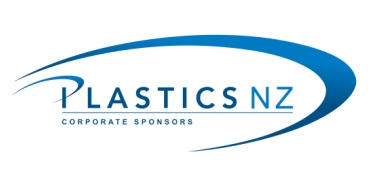FAQs

How much plastic is used in New Zealand?
See the General Statistics section of this site.
Is plastic a good product?
Yes, plastic is a good product: it is energy efficient to produce and it is lightweight therefore reducing fuel costs in transportation - another energy saver. It provides protective packaging with a minimal use of material. It is usually shatterproof and it is inexpensive to manufacture and purchase. If you look around your home, school, or workplace and take away all the plastics and replace them with traditional materials, you will be amazed at the things you would have to learn to live without, or the number of trees that would be felled to replace some of the plastics. Research shows plastic packages over 50% of goods using less than 18% of all packaging resources. Now that is a good product!
How much plastic packaging is produced in New Zealand?
In 2010, 156,345 tonnes of plastic packaging were produced. The average New Zealander uses about 31kg of plastic packaging each year.
What are the most common types of plastic?
There are six main types of plastic, described on our Facts & Resources: Types of Plastics page.
What do the numbers in the triangle on the bottom of bottles mean?
They help to identify the type of plastic used. Many different types of plastic look the same. To help you with recycling, we put identification codes on them. Find out about the Plastics Identification Code described on our Environment: Plastics Identification Code page.
What plastic can I recycle?
All plastics are recyclable but what is recycled differs from area to area. In most New Zealand cities, councils have street-side collections for PET (Polyethylene Terephthalate - e.g. soft drinks bottles) and HDPE bottles (High Density Polyethylene - e.g. milk bottles) and containers. Many councils are also starting to collect PP containers (Polypropylene - e.g. 1kg yogurt tubs) and some councils are collecting all types of rigid plastics.. The first place to check in New Zealand is with your local council. Find your Council http://www.localcouncils.govt.nz/lgip.nsf/wpg_URL/Profiles-Index for household plastic or for commercial waste. See also the New Zealand plastic recycling pages on this site.
Do I have to wash things that I put out for recycling?
Yes, just rinse out the residue and remove the caps. In most places plastic is sorted manually in NZ, so the cleaner the container the better. Spare a thought for our dedicated recyclers sorting milk bottles in the heat of summer. Rotten milk stinks so please rinse.
Do I need to take the lids off my bottles for recycling?
Caps on bottles are often made of a different kind of plastic. Because they can be different materials, they are usually separated out of the recycled material and can be reused. The lids are made from recyclable material, but the volumes are not enough to make recycling commercially affordable. And, you know how white paint is often cheaper than coloured? Well, with plastic it is the opposite. Plastic is worth more when it is uncoloured, because it can be reused much more easily. Leaving lids on bottles contaminates the colour and means it can't be used for as easily.
So why have coloured plastic lids?
So you can buy the right product quickly and easily, and to make sure they seal properly and the contents don't get split.
Can I recycle my supermarket bags?
Don't take one if you don't need one. At least 80% of all shopping bags are reused at least once! Are you reusing yours? The most common use is as a rubbish bin liner. Saves washing out a smelly bin and using litres of water! But there are hundreds of other uses around your home, school or business. Most New Zealand supermarkets have collection bins for unwanted bags. So don't be lazy, take back any surplus bags - but make sure you clean out any receipts and paper and don't take back any biodegradable or dirty bags - these will contaminate the plastic and it won't be able to be reused.
How much plastic do New Zealanders Recycle?
The figure is growing - in 2005, 39,100 tonnes of plastic was recycled. See the New Zealand plastic recycling statistics pages for more.
Doesn't recycled plastic just go to landfill anyway?
No - the plastic collected from your footpaths is in demand! Find out where your plastic bottles and containers go.
What is made from recycled plastic?
There are wheelie bins, outdoor furniture, rubbish bags, plastic lumber planking used in jetties and walking tracks, buckets, pipes, mud flaps, traffic calming equipment, water meter covers, pots for plants, crates, pallets, garden edging, bags, worm farms, compost bins and a developing stream of goods as more recycled material becomes available.
What happens if I put the wrong plastics in my council bin?
Those plastics will either be left for you to throw out or separated and sent to landfill during the sorting process at the recycler's depot. However, this increases the cost of recycling so please make sure you sort them properly.
How is plastic recycled?
In New Zealand we use mechanical recycling. This is where plastics are collected, sorted and baled into like materials, they are then washed and shredded into flakes. The flakes are normally washed then placed into an extruder which is a little like an old fashioned mincer or a spaghetti maker. The plastic is melted, pushed through the extruder, cooled and pressed through a die and chopped or pelletised into granules almost the same as virgin material ready for remaking into new products. The kerbside recycling scheme is the common household collection process organised by Local Government. A contracted waste collector takes selected recyclables from your collection bin, sorts the materials, and bales the waste for distribution to a mechanical recycler who then processes the material for distribution to manufacturers. In NZ we export up to 18,000 tonnes a year of collected material in bales for reprocessing overseas. The rest is reprocessed here and reused by NZ manufacturers.
Is the plastic the same after it has been recycled or does it lose some of its strength?
Yes it does lose some of its original stability, there are always specks of dirt that can affect it and the original molecular make-up is changed a little, therefore it is not quite as easy to make it back into the item it was originally. It can be recycled back into the same items, but it often needs the help of some virgin materials to achieve a quality result.
Why doesn't plastic degrade in the landfill?
Plastic is made up of huge chain molecules which are benign, but no known organism has jaws big enough to eat the molecules. As a result, plastic does not biodegrade. However, most plastics are photodegradable and will break down if exposed to strong sunlight or adverse temperatures. If we could achieve those conditions in a controlled space we would be able to degrade plastic.
Is all plastics packaging recyclable?
Yes it is, but not all of it is recycled through kerbside recycling schemes. Usually because we have lower volumes in NZ that don't justify the cost of the recycling technology required.
Will they ever all be recycled?
As market demand for recycled material grows, more recycling will be possible. The more items we make from recycled materials, the better chance we have of the range of plastics being recycled increasing. So buy NZ made products with recycled content! Look out for plastic products with the Envirochoice label.
Why doesn't the Council take all kinds of plastic?
The main reason is cost - both money and on the environment. In some more remote areas of New Zealand this is a big issue. But as market demand for recycled material grows, more recycling will be possible. The more diverse items we make from recycled materials, the better chance we have of recycling progressing in some of the smaller towns in New Zealand. Environmental Choice Labels are a good way of identifying environmentally designed products and packaging, for more information go to http://www.enviro-choice.org.nz/
Can plastics be made biodegradable?
Yes they can, and there are a number of biodegradable plastics available, but to degrade properly they may need to be treated differently. Some are compostable, please check with your supplier. Biodegradable plastics are not appropriate for all packaging uses. They are also currently much more expensive than traditional plastics. See Degradables section of this website for more information.
Do we have any regulations or legislation controlling plastic in New Zealand?
There is no legislation in place but there is a voluntary Product Stewardship Scheme between Industry and Central Government, to minimise packaging waste. There is also a Code of Practice for Consumer Goods Packaging and an independent system for performance monitoring and handling complaints procedures. For more information go to www.packaging.org.nz.
Is there another solution for plastics packaging waste management?
Yes, in some countries waste plastics are combusted or incinerated to recover the energy from them to provide energy, steam or even diesel as an alternative fuel source. Plastics are derived from natural gas and petroleum refining processes, so they can be a valuable fuel source in countries where fuel is expensive.




